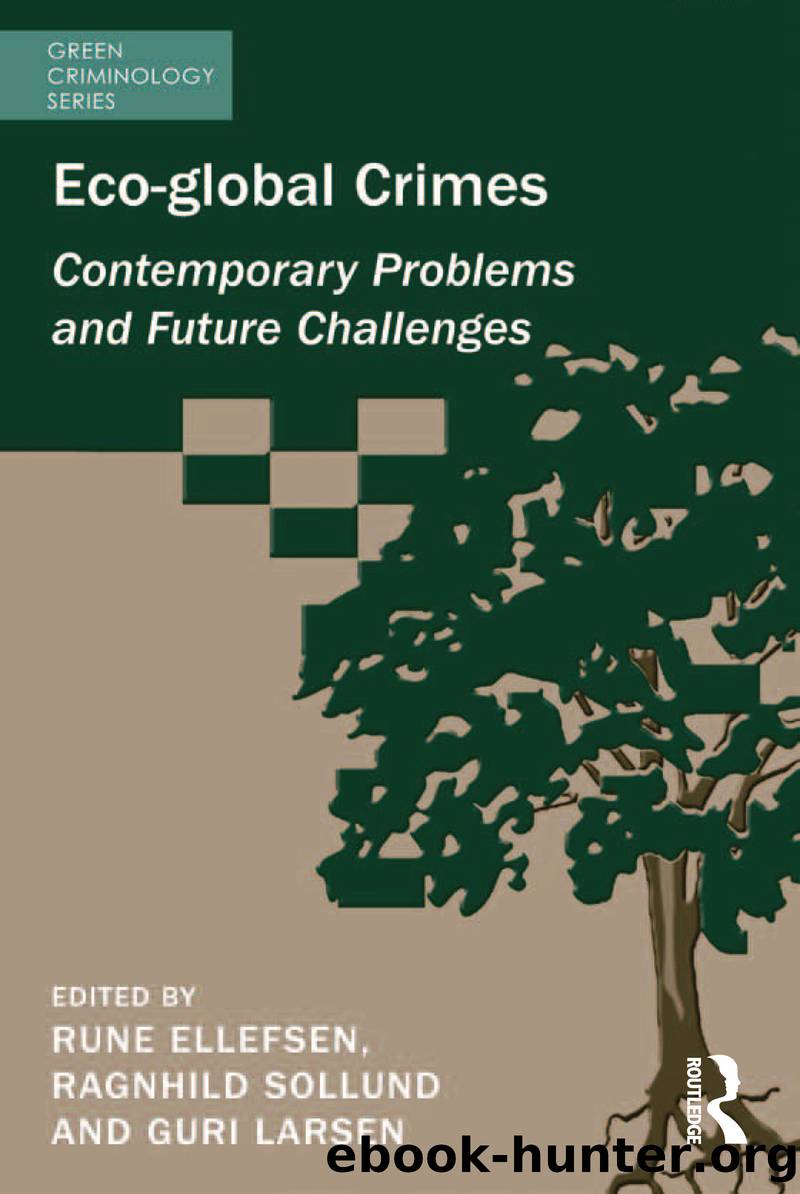Eco-Global Crimes by unknow

Author:unknow
Language: eng
Format: epub
Publisher: Taylor & Francis Group
Published: 2016-08-15T00:00:00+00:00
Chapter 9 Differing Philosophies
Criminalisation and the Stop Huntingdon Animal Cruelty Debate
Elisa Aaltola
DOI: 10.4324/9781315578651-11
Introduction
Particularly in the past two decades, the values and norms attached to non-human animals have emerged as a point of serious interest in societal debate. Next to various cultural and historical factors, this is partly due to the influence of both academic and political developments. On the academic side, animal ethics has put forward arguments, according to which the sentience (âphenomenal consciousnessâ, that is, capacity to experience) of non-human animals means that they or their interests have value in themselves, rather than merely as instruments for human purposes (see Singer 1975, Regan 1983, Midgley 1983, Rowlands 1998, Cavalieri 2001). Also, cognitive ethology has introduced the wider public to various fascinating studies concerning the cognitive abilities of animals, and thus manifested that many animals are altogether something more than blind, biological automata (see for instance Dawkins 1998, Bekoff 2002, Panskepp 1998, Rogers 1997). On the political front, the animal rights movement has gained attention with various forms of political actions carried out in the name of advancing the moral and legal status of animals (see Francione 1996; Best and Nocella 2004).
Although academic discussion has provided an important impetus for exploring the moral status of animals even further, the political front has had a much more concrete effect on how the wider public creates meanings concerning the humanâanimal relationship. This is most notably because corporations, states and the media have all taken a public stance on activism, and thus created a background for public debate: via âactionâ and âreactionâ, the status and treatment of animals has become a publically recognised issue. In this debate, âcrimeâ forms a significant element. On the one hand, activists argue that given forms of animal (ab)use are, or should be, illegal. On the other hand, corporations, states and many within the news media suggest that activists themselves are taking part in acts that are, or should be, illegal. Thus, whereas the academic debate has centered on normative and cognitive reconfigurations of the humanâanimal relation, the political front is increasingly revolving around different understandings of âcrimeâ.
The impetus behind this chapter is to explore different representations of the notion of âcrimeâ in the context of the animal industries: what types of actions are considered a crime in the framework of animal (ab)use? The chapter concentrates on the campaign carried out by Stop Huntingdon Animal Cruelty (SHAC) against Huntingdon Life Sciences (HLS), and brings forward a qualitative analysis1 of the internet websites of these two parties during perhaps the most heightened time of the campaign (year 2006), together with relevant reports from the state and mainstream news media. Emphasis will be on the United Kingdom, although implications from the Nordic viewpoint will also be discussed.
1 The chapter makes a broad use of critical discourse analysis, and seeks to map out reoccurring, key themes in the target texts. Before continuing, some background information may be needed. HLS is a large, contractual testing laboratory that tests the toxicity of various chemicals on animals.
Download
This site does not store any files on its server. We only index and link to content provided by other sites. Please contact the content providers to delete copyright contents if any and email us, we'll remove relevant links or contents immediately.
| Comparative | Conflict of Laws |
| Customary | Gender & the Law |
| Judicial System | Jurisprudence |
| Natural Law | Non-US Legal Systems |
| Science & Technology |
American Kingpin by Nick Bilton(3886)
Future Crimes by Marc Goodman(3600)
The Meaning of the Library by unknow(2571)
Inside the Middle East by Avi Melamed(2356)
Why Nations Fail: The Origins of Power, Prosperity, and Poverty by Daron Acemoglu & James Robinson(2297)
On Tyranny by Timothy Snyder(2232)
Living Silence in Burma by Christina Fink(2071)
Putin's Labyrinth(2022)
The Mastermind by Evan Ratliff(1938)
The Smartest Kids in the World by Amanda Ripley(1856)
Think Like a Rocket Scientist by Ozan Varol(1821)
Law: A Very Short Introduction by Raymond Wacks(1748)
It's Our Turn to Eat by Michela Wrong(1731)
The Rule of Law by Bingham Tom(1698)
Philosophy of law a very short introduction by Raymond Wacks(1670)
Leadership by Doris Kearns Goodwin(1638)
A Dirty War by Anna Politkovskaya(1630)
Information and Communications Security by Jianying Zhou & Xiapu Luo & Qingni Shen & Zhen Xu(1621)
Civil Procedure (Aspen Casebooks) by Stephen C. Yeazell(1556)
